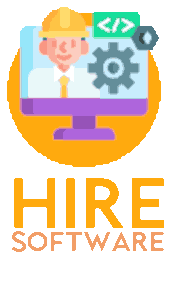Software Engineers for Your First Startup will help transform your ideas into reality. Their expert coding skills, combined with an innovative mindset, can result in a software product that truly stands out, impresses investors, and delights customers.
As a first-time startup founder, finding the right software engineering talent can be a daunting task. You need candidates who have the technical skills, cultural fit, and growth mindset to help your startup succeed.
Key Takeaways
- Determine your specific hiring needs, including required skills and expertise.
- Create a detailed job description outlining responsibilities, qualifications, and preferences for candidates.
- Source candidates through various channels, such as job boards, social media, and professional networks.
- Screen resumes and conduct interviews to identify candidates who align with your startup’s values and goals.
- Assess technical skills through coding tests, technical interviews, and practical assignments.
- Evaluate soft skills and team fit to ensure compatibility with your existing team dynamics and culture.
- Offer competitive compensation packages and benefits to attract and retain skilled engineers.
- Create growth opportunities through training programs, mentorship, and challenging projects.
- Foster a positive work culture that encourages continuous learning, career development, and recognition of achievements.
Determine Your Hiring Needs
Before you start the hiring process, it’s crucial to assess your specific hiring needs. You need to determine the skills and expertise required for your software engineering positions. This includes programming languages, frameworks, or specific domain knowledge.
Identify the essential roles you need to fill to get your startup off the ground successfully. Determine whether you need a frontend, backend, or full-stack developer. If you’re building a mobile app, you might need an iOS or Android developer. Some startups also require DevOps engineers who can handle infrastructure and deployment.
Once you have identified the roles you need, create a list of skills required for each position. Determine the level of expertise you need for each skill, such as intermediate or advanced.
It’s also essential to consider how many software engineers you need at each level of experience. For example, you may need one senior software engineer to lead the team and three junior software engineers to support them. Or, you may need a larger team of mid-level engineers to build your product quickly.
Define Your Job Requirements

Once you have identified your hiring needs, you must define your job requirements. Creating a detailed job description will help you attract the right candidates for your startup. Start by outlining the responsibilities of the role and any qualifications that candidates must meet.
Include any additional preferences you have for candidates, such as experience with specific programming languages or frameworks. Be specific about the job requirements to ensure that candidates understand the expectations.
Source Candidates
When it comes to sourcing software engineering candidates for your startup, there are various channels you can leverage. Here are some effective strategies to consider:
- Job boards: Post your job listings on relevant job boards, such as Indeed, Glassdoor, or LinkedIn.
- Social media: Utilize social media platforms, such as Facebook, Twitter, or Reddit, to reach out to potential candidates and promote your open positions.
- Industry events: Attend industry events, such as hackathons or conferences, to connect with talented engineers and build your network.
- Professional networks: Leverage your existing professional networks, such as LinkedIn connections or alumni associations, to seek referrals or recommendations.
- Headhunters: Consider partnering with headhunters or recruitment agencies that specialize in hiring software engineers.
Be proactive in reaching out to potential candidates and tailor your messaging to their interests and qualifications. Remember to showcase your startup’s mission, culture, and values to attract like-minded individuals who can contribute to your long-term success.
Now that you have received resumes from potential candidates, it’s time to screen them to identify the most qualified individuals. Look for candidates who have the necessary technical skills, experience, and education that match your job requirements.
Once you have shortlisted candidates, conduct initial phone or video interviews to further assess their skills, experience, and culture fit. This is an opportunity for you to learn more about the candidates’ backgrounds and determine whether they are a good fit for your startup. Consider asking questions that will help you understand their problem-solving abilities, coding proficiency, and ability to work on real-world projects.
Screen Resumes
When screening resumes, keep an eye out for the following:
- Relevant experience and education
- Skills and expertise that match your job requirements
- A clear and concise resume that demonstrates their ability to communicate effectively
Conduct Interviews
When conducting interviews, consider the following:
- Ask behavioral questions to understand how candidates have approached projects in the past and how they would handle situations in the future
- Take note of their communication skills and ability to articulate complex ideas
- Assess their culture fit with your existing team
Remember to keep the conversation flowing and engage the candidates in a dialogue. This will give you a better understanding of their personality and working style.
Assess Technical Skills
Technical skills are a critical aspect of software engineering, and assessing them is crucial to ensure that you hire capable candidates for your startup. Here are some strategies to evaluate technical skills:
| Method | Description |
|---|---|
| Coding tests | Provide candidates with coding challenges or tests that assess their problem-solving abilities and coding proficiency. You can use online platforms such as HackerRank or LeetCode to create tests and evaluate candidates. |
| Technical interviews | Conduct technical interviews to evaluate candidates’ knowledge of programming languages, frameworks, and tools relevant to your software engineering positions. Ask them to solve coding problems or discuss their experience with specific technologies. |
| Practical assignments | Assign a practical task or project that reflects the actual work that the candidate will perform in your startup. This will help you assess their ability to work on real-world projects and deliver results. |
By assessing candidates’ technical skills, you can ensure that you hire software engineers who can contribute to your startup’s success and growth.
Evaluate Soft Skills and Team Fit
When hiring software engineers for your startup, evaluating technical skills is essential, but it’s equally important to assess candidates’ soft skills and team fit. Soft skills refer to non-technical abilities that affect how a software engineer works with others, communicates, and adapts to new situations.
During the interview process, pay attention to how candidates answer questions, how they collaborate with your team, and how they handle constructive feedback. Look for candidates who have strong communication skills, problem-solving abilities, and are open to learning and adapting to new technologies.
Team fit refers to how well a candidate aligns with your startup’s culture, values, and existing team dynamics. Consider how they interact with your team during the interview process and if they share similar interests and passions related to your startup’s mission.
Ultimately, hiring engineers who not only have the technical skills but also fit in well with your team can help enhance productivity, foster a positive work culture, and help your startup succeed.
Offer Competitive Compensation and Benefits

Competitive compensation and benefits play a crucial role in attracting and retaining top software engineering talent. When determining your salary and benefits packages, research industry standards and consider what will appeal to your target candidates.
Aside from a competitive salary, consider offering additional perks such as flexible work hours, remote work options, and generous vacation time. Providing health insurance coverage, retirement plans, and professional development opportunities can also significantly impact your ability to attract and retain skilled software engineers.
It’s important to regularly review and adjust your compensation and benefits packages to ensure they remain competitive. Providing ongoing opportunities for growth and development, as well as a supportive and inclusive work culture, will further strengthen your ability to attract and retain the best software engineering talent.
Onboard and Provide Growth Opportunities
Once you have hired software engineers for your startup, it’s essential to ensure a smooth onboarding process to integrate them into your team. Onboarding is more than just orientation; it’s about providing a comprehensive understanding of your company, culture, and expectations. It’s an opportunity to set your new hires up for success and help them feel comfortable in their new roles.
Create an onboarding checklist that covers all the necessary steps, such as introducing team members, explaining your company’s mission and vision, and familiarizing new hires with tools and processes they will use. Encourage questions and feedback to address any concerns your new hires may have.
Beyond onboarding, provide growth opportunities for your software engineers, such as access to training programs, mentorship, or challenging projects. Encourage a culture of continuous learning and reward ambition. Invest in your employees’ development, and they will invest in your company’s success.
Create a Positive Work Culture
Building a positive work culture is crucial for attracting and retaining top software engineering talent. As a startup founder, you have the opportunity to shape your company’s culture from the ground up.
Start by fostering an inclusive and collaborative environment where everyone feels valued and supported. Encourage open communication and active listening to ensure that everyone’s input is heard and respected. Recognize and celebrate achievements to boost morale and foster a sense of community.
Invest in your employees’ well-being by offering benefits such as flexible work hours, remote work options, and wellness programs. Encourage work-life balance and ensure that your team feels supported and cared for.
Provide growth opportunities through training programs, mentorship, and challenging projects. Encourage continuous learning and career development to help your team reach their full potential.
Finally, lead by example. Model the behavior and values that you want to see in your team. Show that you are invested in your team’s success and are committed to creating a positive work culture.
Conclusion – Software Engineers for Your First Startup

It’s important to remember that finding the right talent can be a challenging process, but if you follow the essential steps and strategies outlined in this article, you will be well on your way to building a strong and capable team.
Remember to assess your specific hiring needs, define your job requirements, and be proactive in sourcing candidates. Screen resumes and conduct interviews to identify the most qualified individuals, and assess both their technical skills and soft skills to ensure a positive team fit. Offer competitive compensation and benefits to attract and retain top talent, and provide growth opportunities to foster a culture of continuous learning and career development.
Most importantly, remember to prioritize building a positive work culture that values and supports your employees. By fostering an inclusive and collaborative environment, you’ll be well on your way to building a successful startup with a team of talented software engineers by your side.
FAQ – Software Engineers for Your First Startup

Q: How can I determine my hiring needs for software engineers in my first startup?
A: Before starting the hiring process, assess the specific skills and expertise required for your software engineering positions, such as programming languages, frameworks, or domain knowledge.
Q: How do I define my job requirements?
A: Once you have identified your hiring needs, create a detailed job description outlining the responsibilities, qualifications, and any additional preferences you have for candidates.
Q: What are some ways to source software engineering candidates for my startup?
A: Consider posting job listings on relevant job boards, leveraging social media platforms, attending industry events, or utilizing professional networks to find potential candidates.
Q: How do I screen resumes and conduct interviews?
A: Carefully screen resumes to shortlist the most qualified candidates and conduct initial phone or video interviews to assess their skills, experience, and culture fit.
Q: How can I assess the technical skills of software engineering candidates?
A: Use coding tests, technical interviews, or practical assignments to evaluate candidates’ problem-solving abilities, coding proficiency, and ability to work on real-world projects.
Q: What should I consider when evaluating soft skills and team fit?
A: Pay attention to candidates’ soft skills, such as communication, teamwork, and adaptability, and assess their compatibility with your existing team dynamics and culture.
Q: How can I offer competitive compensation and benefits?
A: Research industry standards and offer competitive compensation packages and benefits that align with your target candidates’ preferences.
Q: How do I ensure a smooth onboarding process for hired software engineers?
A: Provide a smooth onboarding process to integrate new hires into your team and offer growth opportunities, such as training programs, mentorship, or challenging projects.
Q: How can I create a positive work culture in my startup?
A: Foster an inclusive and collaborative environment where employees feel valued and motivated. Encourage open communication and recognize achievements to boost morale.








